Eyewear that filters out blue light
People who struggle to fall or stay asleep can benefit from wearing glasses that filter out blue light. They may also help slow down the progression of age-related macular degeneration, which is a condition of the eye caused by damage to the light-sensitive cells of the retina, or perhaps prevent it altogether.
Here are some benefits to using blue light blocking glasses:
- Improved sleep: Blue light has been shown to decrease the synthesis of the hormone melatonin, which may make it more difficult to fall asleep when exposed to it at night. These glasses filter blue light, which may make it easier for you to go asleep and stay asleep.
- Reduced eye strain: Blue light, which may be produced by digital devices, has been linked to increased eye strain, which can result in symptoms like dry eyes, headaches, and impaired vision. Putting on glasses that block blue light might help alleviate some of these symptoms.
- Prevention of age-related macular degeneration: There is some evidence to indicate that prolonged exposure to blue light may raise the chance of developing age-related macular degeneration, a disease that may result in a loss of vision. It's possible that wearing glasses that block blue light might help minimize this danger.
- Better concentration and productivity: Blue light has been shown to have an impact on a person's capacity to focus and be productive. These glasses filter blue light, which may make it easier for you to concentrate and increase the amount of work you get done.
They are able to filter out blue light while letting other colors of light flow through
Wearing glasses that filter out blue light will help you limit the amount of exposure to blue light that you get from sources such as electronic gadgets and natural sunshine. They also assist maintain your sleep-wake cycle by avoiding disruptions to the production of the hormone melatonin, which is responsible for sleep.
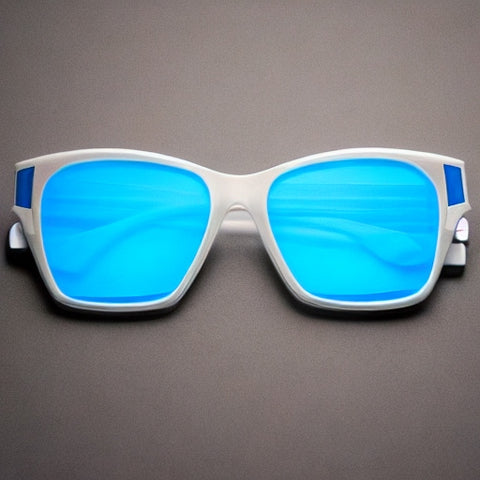
If you're going to wear glasses that block blue light, the best time to do so is when you're not using any electronic devices. For example, if you use your phone, tablet, or computer in the hour or so leading up to bedtime, you should make an effort to cut off all screen usage at least four hours before going to bed. This will provide your body with the necessary time to begin increasing its synthesis of melatonin.
You should pick a pair of glasses that not only look well on you but also sit comfortably on your face in addition to the style. It is important that they do not seem bulky or exert any strain on your eyes.
It is possible that selecting a pair of glasses that filter blue light would seem like an arduous effort. Take into account your own spending limits, the aesthetic you want, and the quantity of blue light you wish to filter out. Also, bear in mind that different glasses will filter different wavelengths of blue light, so don't assume that all glasses will do this.
The majority of eyewear is designed to filter out blue light at shorter and shorter wavelengths. There are other glasses available that are intended to filter out blue light with a high energy level, such as that emitted by artificial sources.
There is a wide variety of choice when it comes to the shape, size, and hue of glasses that filter blue light. You'll be able to locate the ideal pair of eyeglasses based on your preferences and requirements. If you need reading glasses, sunglasses, or spectacles specifically designed for use with a computer, you will have a vast selection from which to pick.
When purchasing a pair of glasses that filter blue light, it is important to be sure that they are a suitable fit for the shape of your face. Examine how you look and feel in a few different pairs before settling on one.
Be careful to familiarize yourself with the directions provided by the manufacturer of the blue light blocking glasses you want to purchase. You will need to be familiar with the appropriate adjustments to make to them as well as suitable maintenance procedures. Investigate whether or whether they have both a lengthy trial period and customer support services.
Macular degeneration brought on by aging might be slowed down or avoided altogether.
Wearing glasses that filter out blue light might help slow down the progression of age-related macular degeneration (AMD) and perhaps even prevent it. The effect that blue light has on one's eyes is yet another matter of worry with this kind of light. It has been shown that exposure to blue light may cause damage to the retina, as well as an increase in the risk of disorders such as cataracts and age-related macular degeneration (AMD).
Blue light glasses are glasses that filter out the blue light that is generated by electronic gadgets. This helps to lower the risk of damage to the retina as well as the development of disorders such as age-related macular degeneration and cataracts. Studies have indicated that wearing glasses that block blue light may lead to a decrease in symptoms such as eye strain and dry eyes, in addition to an increase in visual acuity.
There is no conclusive evidence to support the use of blue light filters. However, there is evidence to suggest that wearing these glasses may help control the symptoms of AMD, minimize eye fatigue, and avoid retinal damage.
A blue light blocker may, among other things, protect your eyes from the harmful effects of UV radiation from the sun. This is due to the fact that the majority of blue light in the visible spectrum travels far further into your eye than other types of light. This ongoing impact has the potential to harm your retina.
Wearing sunglasses is the most effective strategy for reducing the amount of time spent in environments with high levels of blue light. It is recommended that you use a frame that wraps around your face completely. You also have the option of purchasing colored shades, which will prevent blue light from entering the room. On the other hand, there are a lot of individuals who think these things are just marketing hype.
It is in your best interest to stay away from sources of blue light regardless of whether or not you make use of a blue light filter. If you really need to use your smartphone, tablet, or laptop, make an effort to reduce the amount of time you spend gazing at the screen of one of these devices. You may also get a set of glasses that already have a prism integrated into them to shield your eyes from the light.
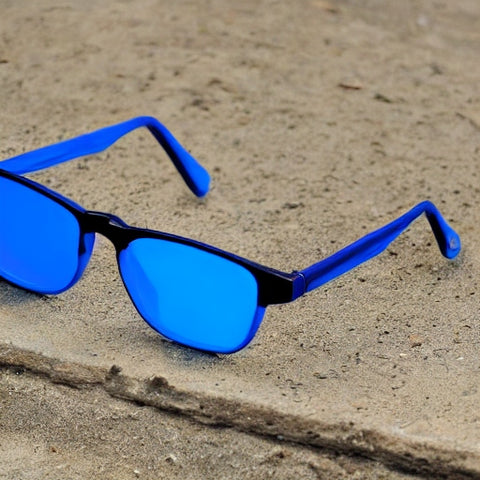
When looking for glasses that will protect your eyes from the sun's UV radiation, the same rule applies. Radiation of any kind may be harmful to your health, and the ultraviolet rays that come from the sun are no exception to this rule. In point of fact, the most recent study suggests that protecting one's eyes from the sun's ultraviolet rays by donning a pair of sunglasses that block UV rays may even be able to prevent the advancement of age-related macular degeneration.
Some of these glasses are also touted as a solution to alleviate the strain that is caused by using digital devices to the eyes. Unfortunately, the Food and Drug Administration does not have authority over the majority of these goods, and as a result, there is less evidence to support their claims.
In addition, it is quite improbable that a pair of glasses that filter blue light can reverse the macular degeneration you have. On the other hand, they might be helpful in the management of your symptoms and in halting the progression of the illness to the point where it causes blindness. Get in touch with your eye care provider or optometrist if you have questions about these lenses.
You could also want to think about getting a pair of distant vision glasses, but this decision will depend on your lifestyle as well as your financial situation. These specialized glasses, which are often referred to as bioptic telescopes due to their ability to increase one's center vision for distant objects, may be purchased.
They might help those with insomnia have more restful sleep
One of the primary issues with blue light is the effect it has on one's ability to sleep. It has been shown that exposure to blue light inhibits the synthesis of the hormone melatonin, which is responsible for controlling the sleep-wake cycle in the body. This may result in difficulty falling asleep or staying asleep, as well as other sleep disruptions, as well as an increased risk of disorders such as anxiety and depression.
Blue light glasses function by filtering out the blue light that is released by electronic gadgets, which may assist to minimize the suppression of melatonin and enhance sleep quality. Blue light glasses are available for purchase online. Studies have indicated that wearing blue light glasses in the evening may lead to an increase in the synthesis of melatonin as well as a decrease in other types of sleep disruptions, such as insomnia.
There is evidence that suggests that wearing glasses that filter blue light can help those who have trouble sleeping. Blue light, which may be emitted by electronic devices such as cellphones and laptops, as well as fluorescent lighting, is known to interfere with the body's natural sleep-inducing processes. Melatonin is a hormone that helps people go to sleep and its production may be inhibited by blue light, which has wavelengths that range from 400 to 490 nanometers. Your body's circadian rhythm, which is responsible for regulating your sleep-wake cycle, is disrupted as a result of this.
When utilized after dark, blue light poses a particularly serious set of problems. LED displays are used in a wide variety of consumer gadgets, including smart phones, e-readers, and computer monitors. LED screens produce light with a wavelength that falls between 400 and 490 nanometers. When you gaze at displays like these late at night, you throw off your normal sleep cycle and reduce the amount of melatonin that your body produces.
Blue blocker glasses function by limiting the amount of time your eyes are exposed to blue light's shorter wavelengths. According to studies, only one hour of exposure to blue light is enough to trigger the creation of cortisol, a hormone associated with stress, which in turn inhibits the generation of melatonin, a hormone that helps people go to sleep. Therefore, you may avoid a significant portion of this stress by using glasses that filter blue light.
Blue-light-blocking glasses may be purchased on the internet as well as at stores that sell eyeglasses. They have lenses that have been specifically engineered to mitigate the effects of blue light. A few of these lenses have a yellowish tinge, while others have a clear coating on them. Make sure you test on a new pair of eyeglasses before purchasing them to ensure that they are comfortable and fit your face properly. You should also seek for a product that offers a lengthy trial period.
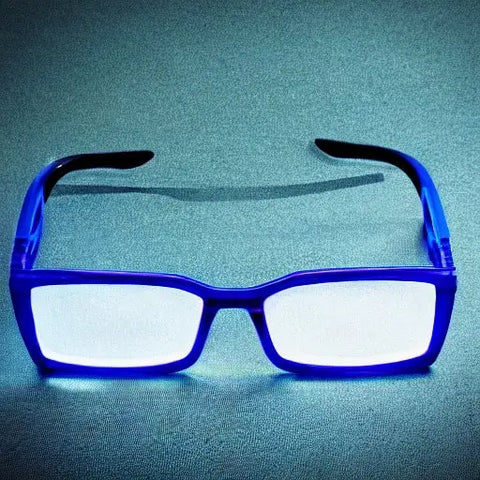
It's also possible to shorten the amount of time your body spends sleeping by wearing glasses that filter out blue light. Studies have indicated that individuals who wear glasses that filter blue light report an improvement in the quality and duration of their sleep. These glasses are not only useful for enhancing mental performance but also for regulating one's mood.
If you find that blue light prevents you from having a restful night's sleep, it's time to discuss the possibility of wearing glasses that block blue light with your primary care provider. You should be able to receive a free trial, and if the glasses don't fit well or don't operate as intended, you should be able to get your money back.
In spite of the fact that there is evidence suggesting that blue-light blocking glasses are a helpful intervention for sleep disorders, it is essential to have a solid understanding of how the device operates. It's conceivable that wearing blue-blocking glasses in the morning would boost your melatonin levels, which in turn could make it easier for you to go to sleep at night.
They might cause harm to cells in the retina that are sensitive to light
Glasses that block blue light are made specifically to shield your eyes from the damaging effects of exposure to blue light. They may alleviate some of the eye strain that results from using digital gadgets for extended periods of time. However, there is conflicting evidence on their effectiveness.
Even though there have been studies that imply blue light is detrimental to the retina, the vast majority of ophthalmologists do not feel that this kind of light is bad for the eye. Nevertheless, if you have any concerns or questions, you should talk to your primary care physician.
Long-term exposure to blue light with a high intensity has the potential to cause a number of eye conditions, including cataracts, glaucoma, and age-related macular degeneration, in addition to the risk of causing damage to the retina. These diseases may result in a loss of vision in the center of the field of vision.
At this time, there have been no studies conducted on humans to assess whether or not the retina may be damaged by exposure to blue light. However, research conducted on animals demonstrates that being exposed to bright light may have unfavorable effects.
According to the findings of a research conducted at the University of Toledo, light may be able to initiate chemical processes in the eye. The demise of retinal ganglion cells is brought on by the activation of receptor interacting protein (RIP)1 and RIP3 in the outermost layer of the eye. This activated signal distributes in an unequal manner to the cells that are nearby, which results in variations in the potential across the mitochondrial membrane and ultimately a weaker RGC.
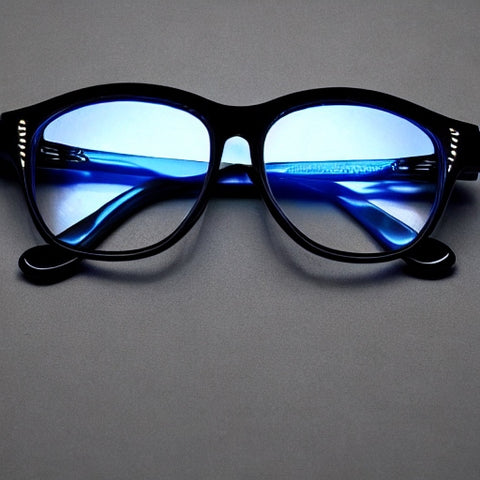
Ongoing studies are looking at the negative effects that blue light might have on humans. The kind of electronic gadget you use and the amount of time you spend interacting with it are two factors that determine whether or not you should wear glasses that filter out blue light.
Digital eyestrain affects a significant portion of the workforce that relies on computers or tablets. This may lead to headaches, eye strain, and a reduction in one's ability to see well. It may be helpful to use screen filters that cut down on the quantity of blue light. Glare may also be reduced by selecting lenses that have an anti-reflective coating.
According to the findings of certain research, wearing glasses that filter out blue light may help protect your eyes from the adverse effects of exposure to blue light. You may find that wearing these glasses helps you prevent digital eye strain, improves the quality of your sleep, and lowers your risk of eye cancer and cataracts.
On the other hand, it is essential to be aware that the American Academy of Ophthalmology does not believe that exposure to blue light is detrimental to the eye. There is no definitive proof as of yet, despite the fact that an increasing number of research point to the possibility that blue light may cause long-term harm.
Effects on Mood as Well as Cognitive Performance
Alterations in mood as well as cognitive performance have been ascribed to exposure to blue light. Studies have indicated that being exposed to blue light for an extended period of time may lead to an increase in emotions of anxiety and sadness, in addition to a decline in cognitive performance.
Blue light glasses operate by filtering out the blue light that is released by electronic gadgets. This helps to lessen the influence that blue light has on a person's mood as well as their ability to think clearly. Studies have shown that wearing blue light glasses may lead to improvements in mood and cognitive performance, as well as a decrease in symptoms such as sadness and anxiety. This is because blue light glasses filter out some of the wavelengths of light that cause these symptoms.
How to Wear Blue Light Glasses
Wearing blue light glasses is recommended anytime you use electronic gadgets, but particularly in the evening when your body is winding down for the night and getting ready to sleep. Additionally, it is suggested that you wear them when working in settings that make use of artificial lighting. It is crucial to remember that wearing blue light glasses may help lessen the effects of blue light, but they may not entirely prevent all exposure to blue light. This is something that should be kept in mind. As a result, it is essential to restrict the amount of time spent using electronic devices and to be conscious of the blue light sources that are present in your surrounding surroundings.




























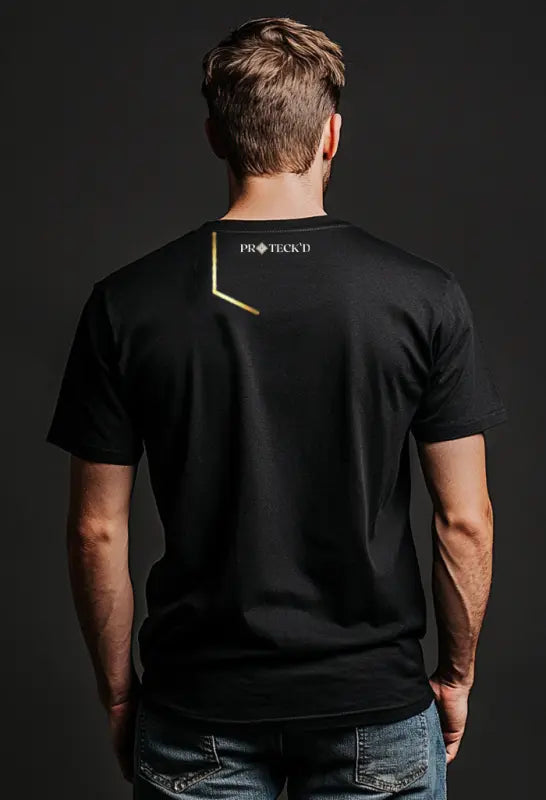
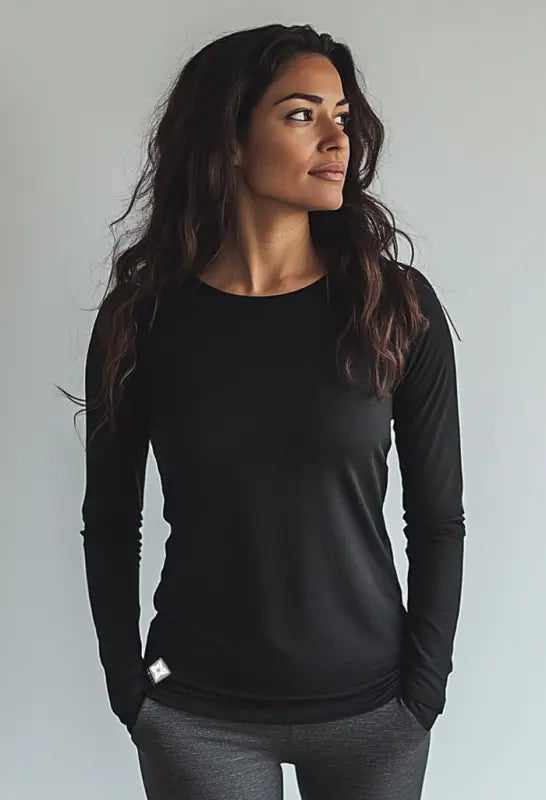



















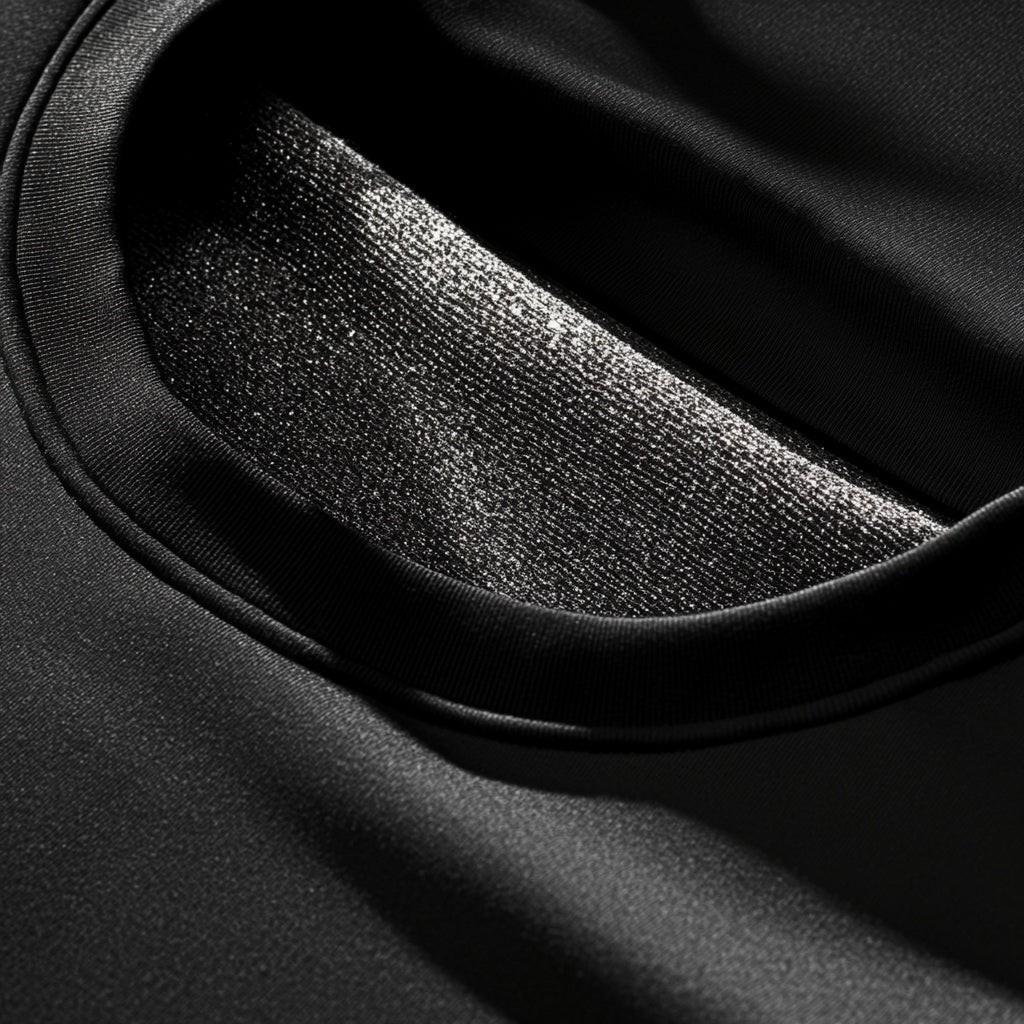

Hinterlassen Sie einen Kommentar